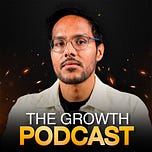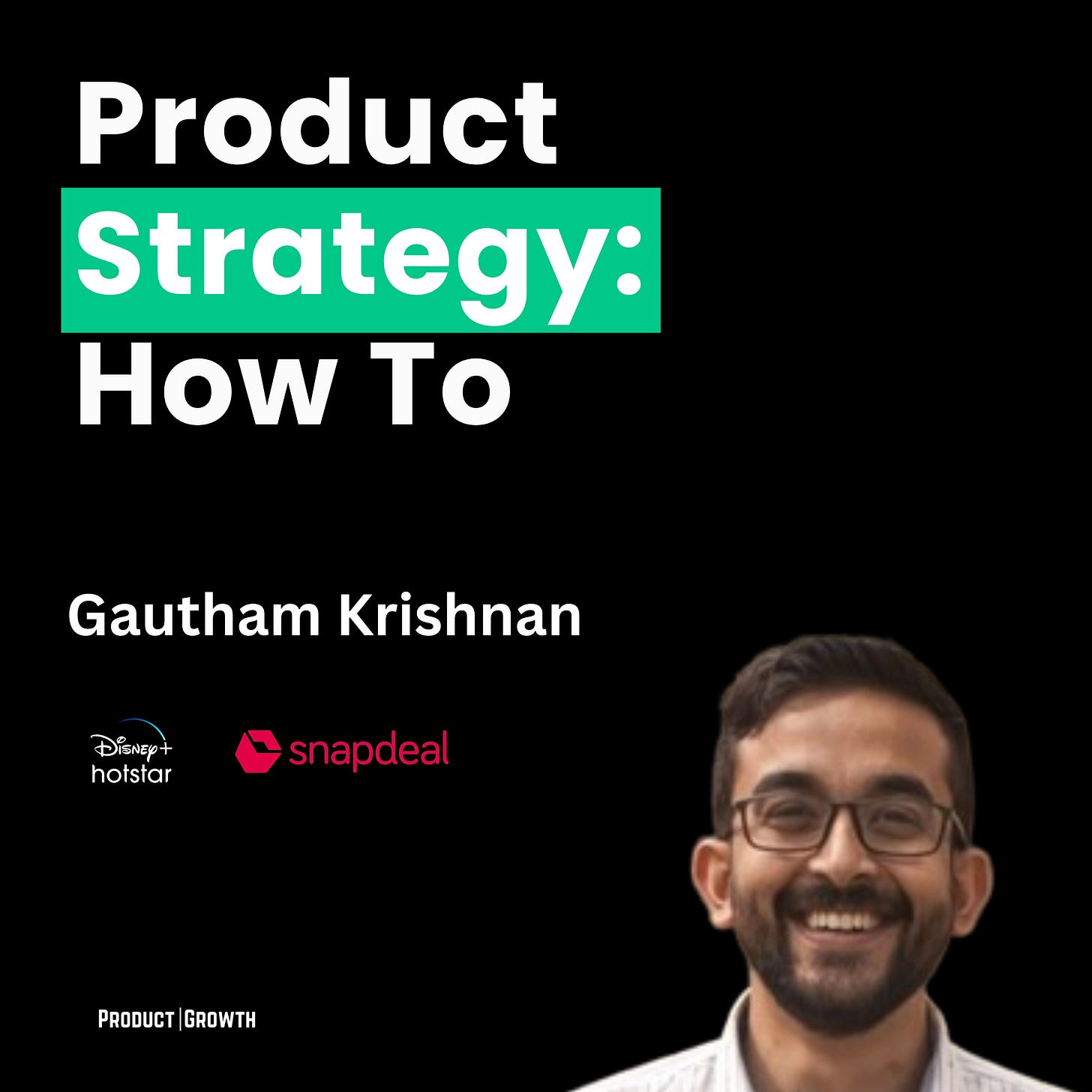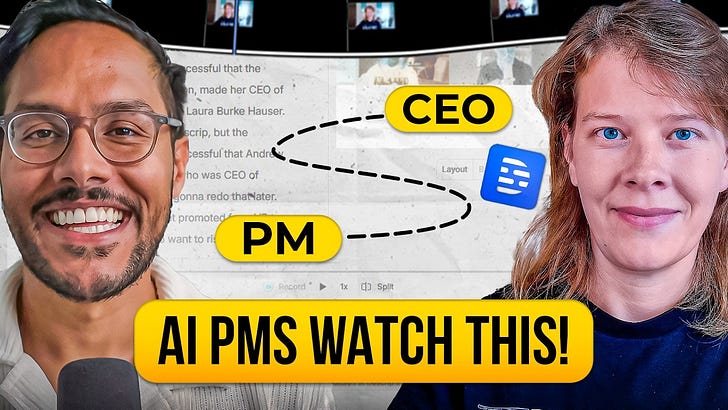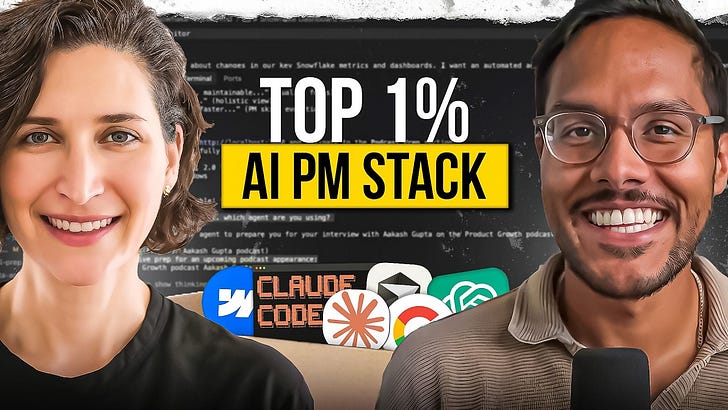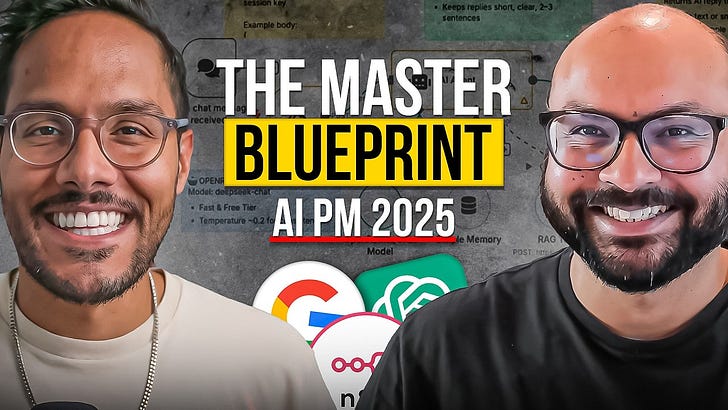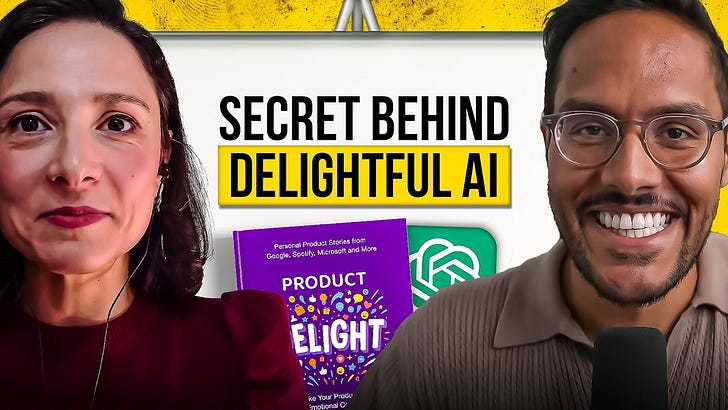Listen now on Apple, Spotify, or YouTube.
Brought to you by:
Explo: Customer-Facing analytics in your product
Attio: The next generation CRM
Enterpret: Transform customer feedback into product growth with custom AI
Today’s Episode
This episode was filmed in the heart of Bangalore, Indiranagar!
You’ll get the full vibe of a real cool founder’s house above a pizza place we put together for this podcast.
And it’s a good one.
In today's episode, I go deep on strategy with Gautham Krishnan. Gautham has been a Director of PM at Snapdeal and VP of Product at GamesKraft.
And is now Executive Director of PM at Disney + Hotstar, leading their whole product org.
Here are the Key Takeaways
1. Product Managers Need to Think Beyond Roadmaps
Most PMs focus too heavily on shipping features and meeting roadmap deadlines, often losing sight of the bigger picture.
He shares a powerful story about bringing his TV to the office so the developers could experience the bug firsthand — after they dismissed it as “not reproducible.”
But he wasn’t willing to let it go.
Why? Because the issue had the potential to impact 200 million monthly active users across similar devices.
As a PM, your job isn’t just about shipping features or fulfilling some checkboxes…
It’s about solving meaningful problems that directly influence user satisfaction, retention, and business outcomes.
2. Building a High Impact Product Strategy
At its core, a great product strategy connects business objectives with deep consumer insights and driving measurable impact.
Here’s how you can create it:
Holistic Value Chain Approach → It considers the entire value chain, from how the product interacts with users at every touchpoint to the underlying systems that support it.
Deep Consumer Insights → Identifying their pain points, behaviors, and unmet needs.
Clarity and Alignment → Clearly articulate three things: Why the product exists, Who it serves, and How it achieves business goals.
Second-Order Thinking → Consider the long-term ripple effects on user behavior, market positioning, and scalability.
If your strategy checks these boxes, you’re on the path to driving real, lasting impact.
3. Pre-Mortems Are Non-Negotiable
In fast-paced organizations, there’s often a bias for execution.
But jumping into experiments without identifying risks is a major mistake.
He focuses on the use of pre-mortems, where teams anticipate what could go wrong before an initiative even starts using frameworks like Marty Cagan’s four risks:
Usability, value, execution, and business viability.
It’s critical to deeply understand and mitigate risks before committing significant resources.
While this might slow things down initially…
It ensures that experiments and initiatives are set up for success, especially in resource-intensive organizations.
4. Customer Obsession: The Underrated Superpower of High-Performing PMs
High-performing PMs stand out because they prioritize understanding their users on a deep level which help them solve real problems.
Three critical elements of understanding your customers:
Leverage Data to Understand User Behavior: Dive into user flows and cohort analysis to identify drop-off points and behavioral patterns.
Map User Journeys: Break down every touchpoint in the user’s experience to spot friction and opportunities for improvement.
Gather Feedback Strategically: Engage directly with users through interviews, surveys, or community forums to uncover insights. Don’t rely solely on customer support data, which might focus more on ticket resolution than systemic issues.
Last but not the least, don’t forget to focus on non-engaged and churned users.
Without customer obsession, PMs risk building features no one needs, losing sight of retention, or missing opportunities for growth.
5. You’re Never Late to Innovate in a Market
Market saturation is a myth when you have the right insights.
BluSmart’s rise against Uber in India is a masterclass in seizing untapped opportunities.
By addressing pain points like unreliable rides and unclean cars with a company-owned EV fleet, BluSmart captured premium users and redefined ride-hailing in India.
Even in crowded markets, there’s room for growth if you focus on underserved segments, understand customer behavior deeply, and innovate across the value chain.
5 things they did to win in such a crowded market:
Identifying pain points in the existing market
Innovating the business model
Customer-centric features that solves real problems
Value chain optimization
Market Premiumization
For more details, listen to the full episode now!
Referenced
Where to find Gautham
Up Next
We have some great podcasts coming from: Aishwarya Ashok, Anuj Rathi, and Bilawal Sidhu. I’m so excited to share them with all of you.
In the newsletter, check out this week’s latest piece if you haven’t yet: Product Growth Course Pack: 2024.
And look out for these pieces up next:
The Three Types of Referrals
The Google PM Interview Guide
European Market Deep Dive
I think you’re going to love them,
Aakash

